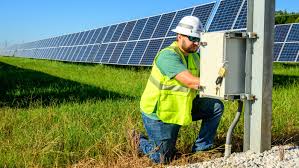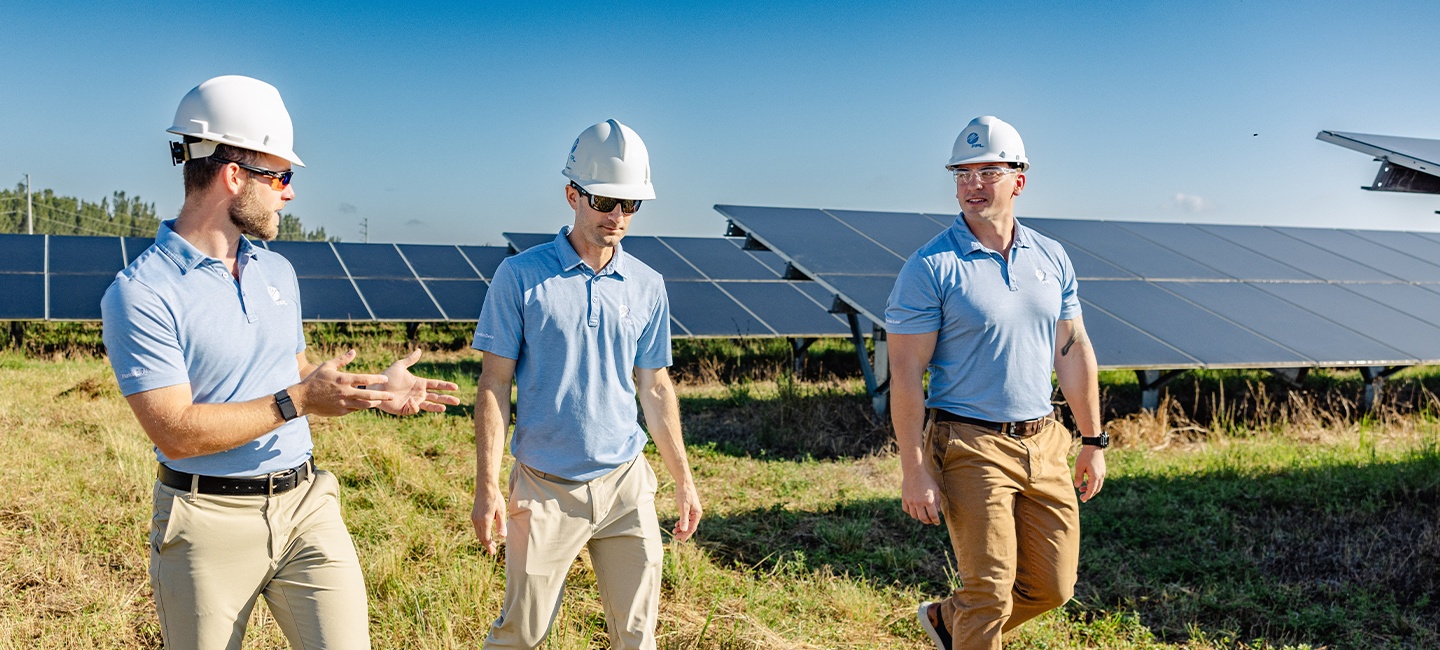

Renewable energy financing provides capital specifically for investments in clean energy technologies and infrastructure. Unlike conventional business loans, these financing solutions are tailored to the unique cash flow characteristics of renewable energy projects, which typically involve higher upfront costs followed by steady, long-term returns through energy savings or generation.
For example, if your manufacturing company wants to install a $250,000 solar array that will generate $45,000 in annual energy savings, renewable energy financing can structure payments to align with these savings, potentially creating immediate positive cash flow.
What sets renewable energy financing apart is its integration with available incentives, grants, and tax benefits. Lenders in this space understand how to leverage programs like the federal Investment Tax Credit (ITC), USDA REAP grants, accelerated depreciation benefits, and state-specific incentives to enhance project returns. Unlike standard business term loans, renewable energy financing considers the unique economics of sustainable investments.
Investing in renewable energy offers compelling advantages that extend beyond typical business investments:
✅ Key Benefit: Many renewable energy projects achieve payback periods of 4-7 years, followed by decades of reduced operating costs or revenue generation.
Khojie offers several pathways to fund your renewable energy initiatives:
Ideal for: Solar panels, wind turbines, geothermal heat pumps, battery storage systems
Learn more about our equipment financing solutions for a better understanding of how this option works.
Ideal for: Larger renewable energy implementations, particularly in rural areas
Our SBA 504 loan program and USDA B&I loans include special provisions for renewable energy initiatives.
Ideal for: Building-integrated renewable systems and major energy efficiency upgrades
This option works well with our commercial property financing for comprehensive building upgrades.
Ideal for: Established businesses with strong credit implementing various renewable projects
Similar to our standard business lines of credit but customized for renewable projects.
💡 Khojie Advantage: Our specialists evaluate which financing option maximizes available incentives and optimizes cash flow for your specific renewable energy project.
While renewable energy financing considers traditional business lending factors, it places special emphasis on project-specific elements:
Documentation typically required includes:
A major advantage of renewable energy investments is access to substantial financial incentives:
| Incentive Type | Description | Typical Value |
|---|---|---|
| Federal Investment Tax Credit (ITC) | Direct reduction in federal taxes owed | 30% of project costs |
| Accelerated Depreciation (MACRS) | Faster equipment write-offs for tax purposes | Additional 20-30% in tax benefits |
| State & Utility Incentives | Varies by location - tax credits, rebates, etc. | 0-25% of project costs |
| USDA REAP Grants | For rural businesses (populations under 50,000) | Up to 25% of project costs |
Combined Impact: These incentives can reduce the effective cost of renewable energy systems by 40-60%, dramatically improving ROI and shortening payback periods. For businesses with limited available capital, combining these incentives with our working capital loans can make renewable energy projects more immediately accessible.
Project: 300kW Rooftop Solar Array
Financing: $600,000 Equipment Financing + SBA Support
Results: 85% reduction in electricity costs, 4.5-year payback after incentives, positive cash flow from month one with properly structured financing
Project: Geothermal HVAC + Solar Hot Water
Financing: $1.2 Million Commercial PACE
Results: 40% reduction in energy costs, enhanced guest comfort, significantly improved building value, and strengthened brand image as an eco-friendly accommodation option
Need capital for a major renovation that includes renewable energy components? Check out our construction financing options that can be combined with renewable energy incentives.
A wide range of projects qualify, including solar panel installations (rooftop, ground-mount, carport), wind energy systems, geothermal heat pumps, biomass energy systems, battery storage installations, and significant energy efficiency upgrades that substantially reduce consumption. These projects often qualify for specialized SBA financing options as well.
Yes, financing can be combined with federal tax credits (like the 30% ITC), accelerated depreciation benefits, state/local incentives, utility rebates, USDA REAP grants/loans for rural businesses, and specialized SBA loan programs. Khojie helps identify all relevant programs for your specific project.
Timelines vary based on project complexity and financing type. Equipment financing can be approved in days to weeks. PACE financing typically takes 4-8 weeks. SBA and USDA programs may take 2-3 months. Working with Khojie expedites the process by ensuring all documentation is properly prepared from the start. For businesses needing faster access to capital, our merchant cash advance options can provide bridge funding while longer-term financing is secured.
Good credit helps, but renewable energy financing often places more emphasis on the project's viability and expected energy savings/revenue generation than on perfect credit scores. Many programs will consider credit scores in the fair range (620+) if the project economics are strong and there's a clear path to energy cost savings. For businesses focused on improving their financial profile, consider our debt refinancing options alongside renewable energy investments.
Absolutely! Combining energy efficiency measures (like LED lighting, HVAC upgrades, building envelope improvements) with renewable energy generation typically yields the best financial returns. Most renewable energy financing programs allow for bundling these complementary projects. This comprehensive approach often qualifies for our asset-based lending solutions for qualified businesses.
Let Khojie help you navigate renewable energy financing options and available incentives to maximize your ROI.